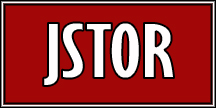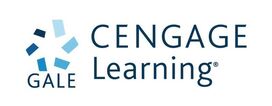RESEARCH
Research Database: Research databases are organized collections of digital information or data that can be searched to retrieve information. Databases can be general or subject oriented with bibliographic citations, abstracts, and or full text. Sources may be written by scholars, professionals or generalists.
A research database can help you easily search and access reliable and credible information from:
Why Use a Research Database?
Databases may cover a wide range of topics like General OneFile, or may be subject specific like the Nursing Reference Center.
You can search a database by keyword, subject, author, title, or publication. Most Databases also have an Advanced Search feature to help narrow results by full text, date range, relevance, lexile, etc.
Databases, with descriptions, are provided through the High School Library Database Portal.
A research database can help you easily search and access reliable and credible information from:
- magazine, newspapers, and journals
- books and e-books
- videos and podcasts
- images, maps, and illustrations
- radio and television transcripts
- websites
- Etc…
Why Use a Research Database?
- Improve the quality of your research.
- Databases contain credible and reliable sources.
- Future classes and programs require the use of scholarly sources.
- Articles are written by experts and journalists.
- Saves You Time (Databases help you find the sources you need for classes and provide topic suggestions, citation help, articles tagged by subject, emailing, printing, or downloading of articles)
Databases may cover a wide range of topics like General OneFile, or may be subject specific like the Nursing Reference Center.
You can search a database by keyword, subject, author, title, or publication. Most Databases also have an Advanced Search feature to help narrow results by full text, date range, relevance, lexile, etc.
Databases, with descriptions, are provided through the High School Library Database Portal.
ADVANCED RESEARCHING
ADVANCED RESEARCH Advanced research and college-level research requires that you use “scholarly sources”. But, what is a scholarly article and why is it important?
A Scholarly Article is a document, written by an expert, for other experts, to communicate new information. These sources will be found in peer-reviewed Academic Journals that are published by a recognized scholarly publisher, association, society, or university.
The Peer Review process is what makes these documents special. Before a scholarly article gets published, a group of other experts read the article and decide whether it contains good ideas, sound methods, and accurate research.
A scholarly article is written for an academic audience while an article in a Popular Magazine is written for a wider audience.
Example of a scholarly source: Journal of the American Medical Association
Example of a non-scholarly source: Parenting Magazine
A Scholarly Article is a document, written by an expert, for other experts, to communicate new information. These sources will be found in peer-reviewed Academic Journals that are published by a recognized scholarly publisher, association, society, or university.
The Peer Review process is what makes these documents special. Before a scholarly article gets published, a group of other experts read the article and decide whether it contains good ideas, sound methods, and accurate research.
A scholarly article is written for an academic audience while an article in a Popular Magazine is written for a wider audience.
Example of a scholarly source: Journal of the American Medical Association
Example of a non-scholarly source: Parenting Magazine
TERMS YOU SHOULD BE FAMILIAR WITH
Periodicals: Publications that are published at regular intervals. Examples are popular magazines, scholarly journals, newspapers, and newsletters.
Popular Magazines/Newspapers: These magazines are designed to entertain, sell products, give practical information, and/or to promote a viewpoint.
Academic Journals: Journals that publish articles which carry footnotes and bibliographies, and whose intended audience is comprised of some kind of research community.
Scholarly Journals: Journals that are intended for an academic audience. The purpose of scholarly journals is to inform other scholars of research findings. Some knowledge of the subject terminology is required. Most scholarly journals are peer reviewed
Peer Reviewed Journals: Journals that primarily exist to publish the research findings of experts in a field. The articles that you see in these journals have been closely scrutinized by a panel of reviewers (also experts in the same field) before they are published.
Full Text: Often when searching for articles, some results might only contain citations, an abstract (summary) of the article you are looking for. To avoid this, use the Advanced Search features of the database and choose Full Text results. This will only return articles that allow you to read the entire article.
Popular Magazines/Newspapers: These magazines are designed to entertain, sell products, give practical information, and/or to promote a viewpoint.
Academic Journals: Journals that publish articles which carry footnotes and bibliographies, and whose intended audience is comprised of some kind of research community.
Scholarly Journals: Journals that are intended for an academic audience. The purpose of scholarly journals is to inform other scholars of research findings. Some knowledge of the subject terminology is required. Most scholarly journals are peer reviewed
Peer Reviewed Journals: Journals that primarily exist to publish the research findings of experts in a field. The articles that you see in these journals have been closely scrutinized by a panel of reviewers (also experts in the same field) before they are published.
Full Text: Often when searching for articles, some results might only contain citations, an abstract (summary) of the article you are looking for. To avoid this, use the Advanced Search features of the database and choose Full Text results. This will only return articles that allow you to read the entire article.
|
JSTOR is a digital library of academic journals, books, and primary sources. JSTOR helps people discover, use, and build upon a wide range of content through a powerful research and teaching platform, and preserves this content for future generations. Please see Mr. Yates for access information.
|
Gale helps libraries connect to researchers who are in search of credible, timely content. Our wide range of online databases offers faculty, researchers, students, and adult learners open access to scholarly, peer-reviewed content they would not otherwise have access to. From full-text journal articles and newspapers to archives and eBooks, there is a resource to meet every need. Access Gale Databases via the Database Portal.
|
|
The NEW YORK PUBLIC LIBRARY has a robust research section of their website. As a New York State resident and tax payer, you have access to these Research benefits. You will need a NYS Driver License to sign up for a NYPL card. You can sign up HERE
|
As an IB advanced researcher, you will have (limited) access to the University of Rochester Rush Rhees Library Catalog. Please see Mr. Yates for details.
|
OTHER RESOURCES
|
OWWL - Local Public Libraries Online - www.owwl.org
MONROE COUNTY LIBRARIES - libraryweb.org GOOGLE SCHOLAR - scholar.google.com |




